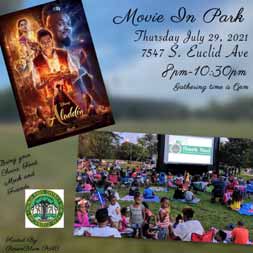The pandemic gave me a lot of time to engage with art and literature while quarantining and one film stayed with me because of how closely the themes it addresses connects to issues we’re still dealing with. “If Beale Street Could Talk” is an adaptation based on James Baldwin’s novel. It’s an ageless and powerful love story that illustrates a couple’s indestructible bond and the resilience of an African American family. In this essay, I will identify the characters throughout the film, discuss the themes/topics addressed in the film and talk about the inspiration behind choosing the film.
“If Beale Street Could Talk” opens up with a quo-tation from Baldwin “Every black person born in America was born on Beale Street, whether in Jackson, Mississippi or in Harlem, New York. Beale Street is our legacy.”
Shortly after, the audience is introduced to Alfonzo(Fonny) and Tish. These are the leading characters throughout the film. Through flashbacks, Tish describes her and Fonny’s plans of getting married and getting a home together but their plans are soon foiled because Fonny has been falsely accused of raping Victoria Rogers. Throughout the film, the audience sees Tish’s family and Fonny’s dad fighting to get Fonny the best legal representation so that he could be exonerated. Joseph, Tish’s father, and Frank, Fonny’s dad even go to the lengths of stealing from their employers and selling the items in Harlem and Brooklyn to provide for their families. Additionally, Sharon, Tish’s mother goes to Cuba to track down Victoria Rogers when she fled America to encourage her to recant her statement about Fonny. These different scenes within the movie illustrate the family’s resilience because they overcame the odds stacked against them.
The themes/topics addressed in the film are police brutality, the dwindling mental health of inmates, family resilience, and the high mortality rate of African American men. According to Froma Walsh, resilience is being able to withstand and rebound from disruptive life challenges.
“If Beale Street Could Talk” illustrates resilience because the family continued to have a positive outlook on life while facing adversity. Moreover, “If Beale Street Could Talk” addressed police brutality because it shows how vulnerable African American people are when it comes to the criminal justice system. For example, Victoria Rogers had never seen Fonny before but when a police officer, who had a personal feud against Fonny told her his name she immediately believed him which changed the course of Fonny and Tish’s life. This scene shows how easily manipulated the system is. Furthermore, “If Beale Street Could Talk” illustrates the “strong black woman” stereotype because Tish is continually pressured by her family to be strong for Fonny and their unborn child. This is a problematic exception because it forces black women to always be resilient and strong which can lead to an increase in stress and depression. Lastly, “If Beale Street Could Talk” illustrates the dwindling mental health of inmates. For example, while Fonny and Daniel talked it became apparent that Daniel is traumatized by his experiences in prison. These traumatic experiences can lead to the decline of inmate’s mental health.
Overall, I chose “If Beale Street Could Talk” because it showed black people living life and experiencing a combination of pain, suffering, joy, and love. It was interesting and new to see all of these different emotions taking place simultaneously instead of just seeing black people’s pain.
Bibliography
Lindsey M. West, Roxanne A. Donovan & Amanda R. Daniel (2016) The Price of Strength: Black College Women’s Perspectives on the Strong Black Woman Stereotype, Women & Therapy, 39:3-4, 390-412, DOI: 10.1080/02703149.2016.1116871
Walsh F. A Family Resilience Framework: Innovative Practice Applications. Family Relations. 2002;51(2):130-137. doi:10.1111/j.1741-3729.2002.00130.x.
Tutashinda, K. (2013). “Never Give Up:” The Development of Young African American Men with Fortitude, Commitment, and Responsibility. Journal of Pan African Studies, 5(9), 207–219. Retrieved from http://search.eb-scohost.com/login.aspx?direct=true&db=a9h&AN=898 62748
Rowe, D., Huskey, B., & Severson, M. (2016). Mental Ill-ness and Douglas County Jail: A New Prescription. Corrections Today, 78(1), 56 -59. Retrieved from http://search.ebscohost.com/login.aspx?direct=true&db=
a9h&AN=112411954









